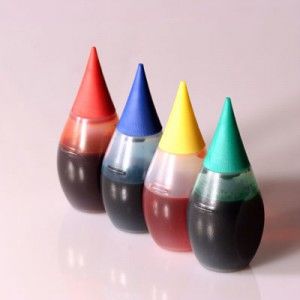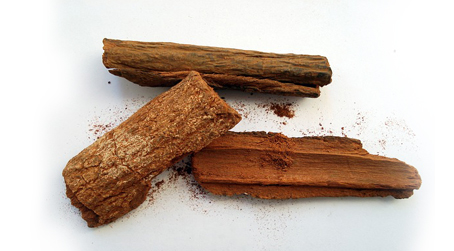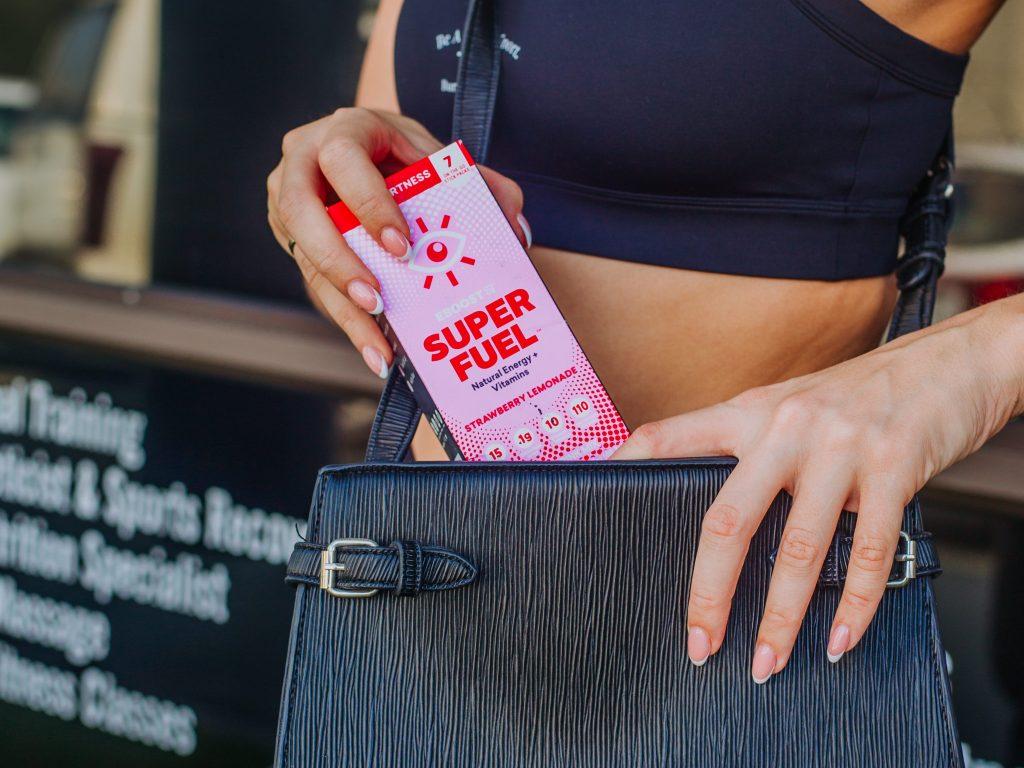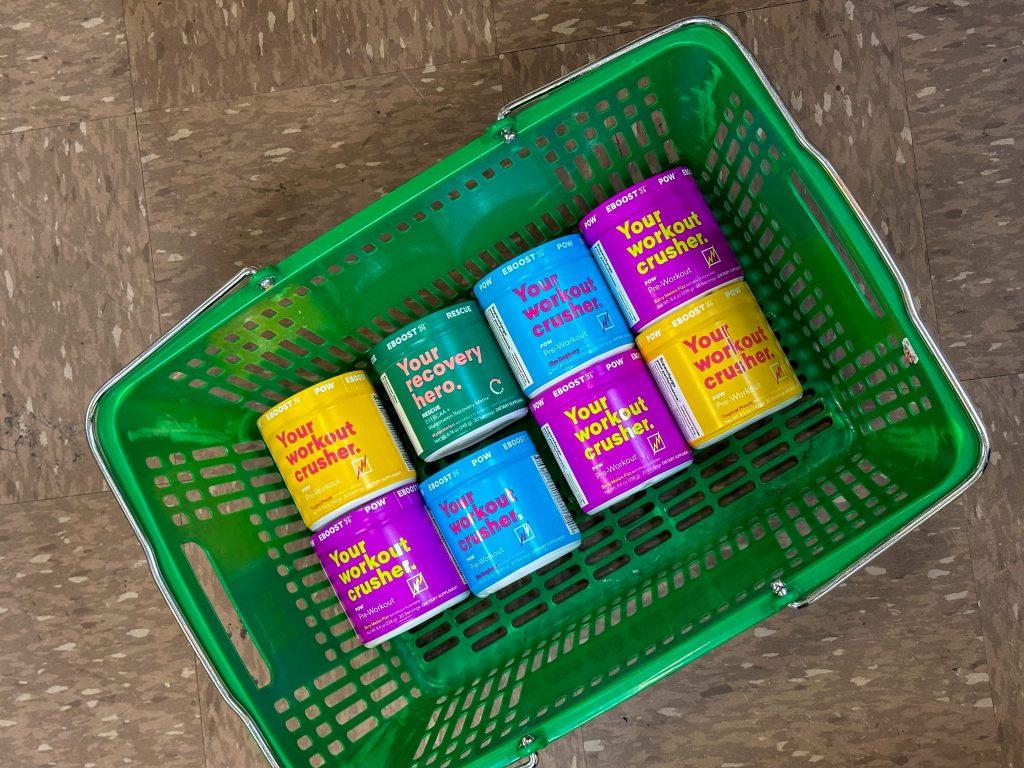From Josh Taekman, Founder of EBOOST –
The fitness industry can be tricky to navigate through. New workouts, styles of training and ways of eating pop up every day. Once you found a workout you like, maybe you then take it a step further and seek out supplements to help your workouts. Then you become more aware on how new pre-workout supplements pop up every day too.
Just like the next new fad workout, supplements can launch into the market without much research to back it up. This is due to the lack of initial regulation put on supplement production. Since research and time aren’t necessary, there are a lot of supplements that are available to the consumers that are incredibly toxic for your body. It is difficult to navigate your way through each and every product wondering which ones are good and which ones are bad. The research is left up to you.
However, I never wanted to mislead the consumer. With each and every one of my products, we have researched and tested them over and over again to always create a product that was healthy and effective. One of the most difficult products to research and test, yet the largest one consumed by customers today are pre-workouts.
To take away some of the guessing game, here are 5 ingredients to avoid in your next pre-workout purchase.
Artificial Coloring
More than 3,000 food additives preservatives, flavorings, colors and other ingredients are added to foods in the United States. Meanwhile, many of same artificial additives are banned in other countries, based on research showing toxicity and hazardous health effects. A lot of products add artificial colors to make their product look prettier or match their branding. But the craziest thing is that they could still achieve the colors they want with natural ingredients that aren’t linked to cancer or tumors.
High Caffeine Contents
The FDA recognizes caffeine as generally safe. However, caffeine is a tricky thing to navigate as it is the world’s most widely consumed psychoactive drug. This is when it becomes important to pay attention to how much caffeine you are consuming in one day. Some pre-workouts alone can exceed the ‘generally safe’ maximum 500mg daily dosage recommendation consumption. To give you an idea, a cup of coffee ranges from 80mg-125mg depending on which coffee beans they are using. And I highly doubt most of us are just having one cup of coffee. Too much caffeine can lead to insomnia, putting your nervous system all out of whack, stomach aches, etc. Sticking with a pre-workout with under 200mg of caffeine is my recommended safe zone. Just be sure to keep track of the other sources of caffeine you are consuming in the day as well.
Everything But The Kitchen Sink
Supplement brands add dozens of ineffective and needless ingredients in small dosages to make long, seemingly impressive, supplement facts panels in many products, including pre-workouts. You shouldn’t have to wrap your head around trying to understand a product that lists more than a dozen ingredients in their supplement facts and ingredients. If this is the case, then most of it is probably just fillers or trying to look impressive for who knows what reason. Instead, these cheap fillers give the consumer false representation of a better product. When actually, in reality, the product is cheaply made, overpriced and, most likely ineffective. Don’t be fooled into this marketing strategy. This is why you can be easily taken advantage of with how you spend your money. Especially when it comes to pre-workout, invest elsewhere.
Yohimbe
Remember, too much of anything isn’t good, especially in pre-workouts. Although Yohimbe is shown in studies to help men with erectile dysfunction. Yohimbe dilates the blood vessels and can lower blood pressure. Yohimbe is also being seen a lot in high volumes in pre-workouts. A dose of Yohimbe that’s too big could drop your blood pressure, cause dizziness, facial flushing and nausea. Now you may be asking, well which dose is too high. The problem with Yohimbe is that it is really hard to gauge how much is in each supplement because it all depends on which part of the tree it is extracted from. (Yohimbe is found from the bark of a west African evergreen). However, the prescription form of yohimbine is strictly regulated by the FDA. It is approved only for the treatment of impotence and prescribed to men for 5.4 to 10 milligrams three times daily.
DMAA
DMAA is also known as 1,3-dimethylamylamine, methylhexanamine or geranium extract. It is an ingredient found illegally in some dietary supplements and often represented as a ‘natural’ stimulant. Basically, it is an amphetamine that you can buy legally. Even with the FDA banning the ingredient, companies are still finding ways to tweak it to reintroduce it into the market – in this case, within pre-workout powders and supplements. Ingesting DMAA can elevate blood pressure and lead to cardiovascular problems from shortness of breath to a heart attack. If you are checking out a product that has a word that seems familiar, make sure you look up the ingredients to see if it falls under a tweaked DMAA. However don’t accidentally confuse it for DMAE. These are two different ingredients. DMAE is an ingredient for helping support brain health and mood. This ingredient is deemed safe and is a common dietary supplement ingredient.
All in all, you don’t need to be consuming anything artificial. Whole foods can provide you with all the energy you need to perform your best during your workout. Stay natural, and stick to products that support these morals. We are proud to say that our pre-workout, POW contains none of the above ingredients. POW has a fast-acting effervescent system. It encourages healthy circulation through the body while leaving you jittery and anxiety free. All while containing no GMOs, no allergens, no gluten, no artificial flavors, colors or sweetener.
Add a little POW pre-workout into your life before you next workout!








